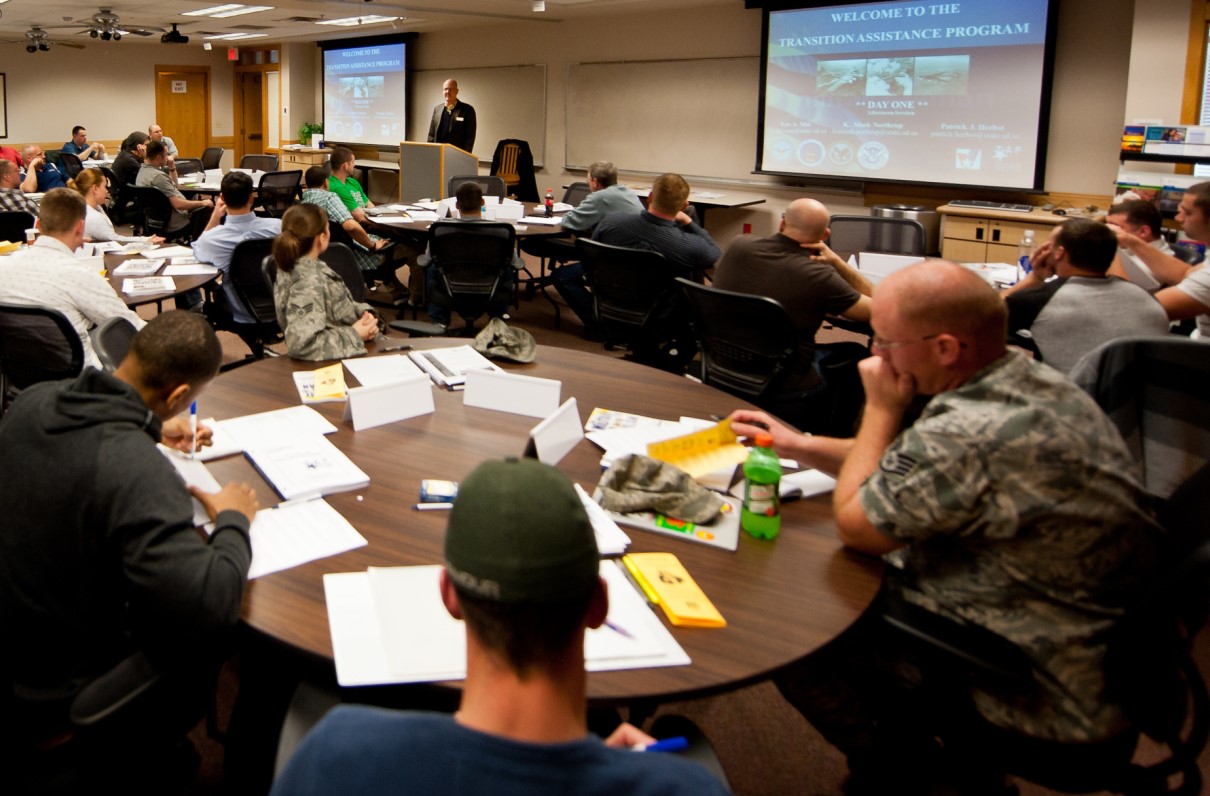Thinking about a career change? According to some recent figures on veteran employment, you’re far from alone.
More than 80% of veterans are likely to leave their first post-military civilian job within two years, according to a recent research effort by VetAdvisor and the Institute for Veterans and Military Families at Syracuse University (IVMF). That’s less than half the median number of years (4.2) that wage and salary workers had been with their current employer, according to the Bureau of Labor Statistics’ September 2018 Employee Tenure Summary.
[RELATED: Register for MOAA’s Military Executive Transition Seminar on Nov. 13]
Officers reported a longer average job tenure than enlisted troops, but slightly more than half of officers also had moved on within two years. The most common factors:
- A new employment opportunity.
- Lack of career development or advancement.
- Dissatisfaction with job quality.
It’s important to understand the real ramifications of changing positions. Leaving on good terms is not only important to maintaining good relations with your current employer and establishing your track record for future employment, but the timing of your move may be more critical than you realize.
[RELATED: 6 Tips to Maximize Your LinkedIn Profile]
So, how long do you need to stay with a job before making a change? That can depend on numerous factors: job satisfaction, job security, upward mobility, financial considerations, and family issues/concerns, to name a few. Here are some guidelines to consider depending on your departure timeline:
Leaving in less than one year: As a general rule, you want to avoid this scenario if it all possible. However, some situations may dictate a very short tenure: You may want to leave to pursue a once-in-a-lifetime career opportunity, you may find yourself in a position you are having a difficult time mastering (with proof via a poor six-month performance review), or you may find yourself in a toxic or hostile organizational culture with your current employer.
Leaving after one year: This time period is generally viewed as the absolute minimum. It demonstrates that you made it through your six-month and one-year employee evaluations and were considered a productive employee contributing to the goals of the organization. Even though most employers would view this as acceptable, you need to avoid making this amount of time a trend on your résumé. For many employers the hiring process is an arduous and time demanding task; job hopping, even early in your civilian career, may be viewed negatively by employers than place a premium on retention and retainability.
Leaving after three to five years: This is right in the sweet spot. No future employer would have any challenges with this length of employment time, and it certainly demonstrates your competence and dedication to your current company/organization. It may even correlate to any vesting time you may need to accrue for your 401(k) or other retirement benefits. It is also a great point in your career timeline to re-assess your career goals and objectives: Are you getting the opportunity for professional growth with the corresponding salary and benefits to match increased roles and responsibilities, or are they demanding more of your time and talent without a promotion or increasing your overall compensation? What is your current employment satisfaction level?
Leaving after more than five years: All may be going exceptionally well and you are enjoying greater responsibilities, professional growth and continued job satisfaction with a bright future on the horizon. Conversely, you may be experiencing stagnation and sensing your motivation levels beginning to wane, and remaining in your current position without any title change or increased responsibilities may give future employers pause regarding your motivation or potential for growth. Ultimately, only you can place the value on job security and stability versus work satisfaction and upward mobility opportunities.
[RELATED: MOAA's Transition and Career Page]
Whether you are making your initial military-to-civilian transition or you are a veteran seeking professional growth and career advancement, MOAA has the perfect one-day seminar for you to enhance your networking connections, develop your résumé, fine-tune your interview skills and prepare you to engage in salary and benefits negotiations. Let MOAA help you to develop a comprehensive strategy to land the right job at the right time! Register and attend our next Military Executive Transition Seminar on Wednesday, Nov. 13 in Arlington, Va. Learn more about the program here.



